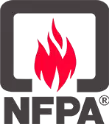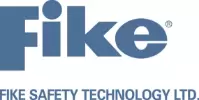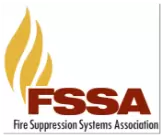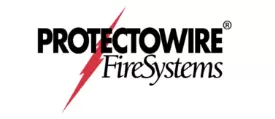
By Amelia Pak-Harvey
LOWELL — Fire officials are coming to the defense of sprinklers after a controversial state document raised questions on the cost and effectiveness of sprinkler and smoke-detection systems. The white paper, drafted for the state’s Board of Building Regulations and Standards, says Massachusetts has more fire-protection requirements than any other New England state. The paper focused on fire-alarm and sprinkler systems for residential buildings with three to six units. It raised questions on the efficacy of sprinklers, citing statistics that suggest the majority of residential fires are too small to trigger them.
For a three-unit building, sprinklers can cost up to $17,000 and a smoke-detection system can cost $6,450, the report found. The price of a new or existing building may be higher if the list of building requirements is long or unclear, according to the paper. Terrel Harris, a spokesman for the Board of Building Regulations and Standards, said the paper is still in draft form and was completed because the state just adopted the newest International Building Code. “We don’t necessarily want to follow it if it doesn’t suit Massachusetts,” he said. “We’d like to come up with regulations that are more applicable to Massachusetts. We’re a much, much older place than many states and cities in the United States. The 11-member Board of Regulations and Standards is the authority over the state building code and has the ability to adopt regulations. Under state law, sprinklers are required in new or recently renovated buildings with at least four units. In Lowell, the Branch Street building where seven people were killed in a fire did not have sprinklers because it was not renovated. The paper suggests there is potential to build “lower cost” multi-unit buildings with “enhanced or equivalent” safety-performance measures. It also suggests proposing a new code for newly constructed residential buildings that have up to six units. But these suggestions are causing a stir from fire officials who see sprinklers as a necessity. State Fire Marshal Stephen Coan came out against the draft paper at an earlier BBRS meeting. “It appalls me that this board would seek to roll-back fire protection in the State Building Code that is clearly effective and part of the national model codes adopted by this board for building construction here in Massachusetts,” he told board members Sept. 9. David Lafond, New England manager for the National Fire Sprinkler Association and former Holyoke fire chief, argued that the paper is trying to eliminate sprinklers in all residential properties. “That’s where we live,” he said. “Eighty percent of the fatalities from fires are from in their homes, where they feel the safest.” The national average cost for installing sprinklers is $1.35 per square foot, Lafond said, although in New England it’s probably a little bit higher. Lowell Chief Edward Pitta said he understands the cost issue, but said sprinklers have been proven to be effective. “Why don’t you put a value on a human life and then I’ll tell you whether I think the system is too costly or not,” he said. “And it’s really what it comes down to.” He said he can’t help but think sprinklers would have helped in the Branch-Street fire. Single- and two-family homes require sprinklers only if they are more than 14,400 square feet. “I would like to see legislation that mandates sprinkler systems in all newly constructed buildings,” Pitta said. “That would be my ultimate goal.” Billerica Deputy Fire Chief Thomas Ferraro said removing sprinklers would be like removing air bags from a car. “Air bags save tons of lives right now, and we know sprinklers save lots and lots of lives, but if we take them away, what are we doing?” he said. He noted an October storm a few years ago that took out the power from one residential building in town. One woman’s electric stove went out while she was cooking, he said, and she emptied the food and put the pan back on the stove. “Monday morning, off she goes to work, the power comes back on,” he said. “The empty pan heats up, catches on fire, gets the kitchen cabinets going.” A single sprinkler extinguished the fire with minimal smoke damage to the unit, he said, and minimal water damage to the apartment and one on the other side of the wall. That saved a multimillion-dollar building, he said. A newer type of “lightweight” construction burns more rapidly and hotter than traditional construction, Ferraro said. The enemy during a house fire is time, he said — which sprinklers provide. “The more time that it takes you to get out of your house, the bigger the enemy,” he said. “The less time, the better you are. But in the new lightweight construction, that time factor has dropped back down.” In Lowell, roughly 1,100 of the city’s 1,800 public housing units have sprinklers, said Lowell Housing Authority Director Gary Wallace. He said sprinklers are preventative, but they’ve only had to use them three times in 28 years. “They just haven’t been utilized, and so many of our properties are brick and cinder block properties so the likelihood of a fire spreading is slim,” he said. “It’s usually contained to a unit.” Harris said the paper does not conclude anything at this point but is just an outline for discussion. “It says these are things that we might want to consider as we try to make a determination whether we should simply follow the International Code as is or if we should make a Massachusetts-specific regulation regarding the matter,” he said. Follow Amelia on Twitter and Tout @AmeliaPakHarvey.













